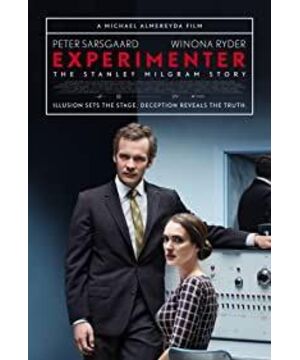Criteria: [A. Boring; B. Fine; C. Nice; D. Great ].
Personal rates: B.
Brief: Telling about several experiments conducted by a psychology professor at Yale University in 1961. One of the most important and controversial is the process and follow-up of the electric shock experiment. This experiment shows the obedience of human nature and the banal sins. The overall film is a bit boring. Base on a story of a famed social psychologist of Yale University conducted a series of experiments in 1961. One of the most significant and controversial was electrical shock experiment concludes the theory of obedience to authority and consents the theory of Mediocre evil.
View more about Experimenter reviews











